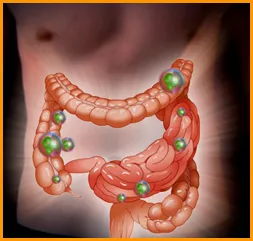Hola mis amigos Especiales!!
El concurso que nos presenta nuestra Comunidad es realmente un reto, sobre todo para quienes están empezando este camino. He notado que hay cierto recelo en cuanto al uso de ciertos ingredientes que de manera convencional hemos venido utilizando en nuestra dieta diaria e indiscutiblemente al realizar merienditas y postres, uno de ellos es el rico "azúcar". Hoy quisiera hablarles un poco acerca del por qué de la restricción de su uso en las comidas que preparamos para nuestros pequeños.
 Imagen de bzwei en Pixabay
Imagen de bzwei en Pixabay
Pudiésemos nombrar muchas razones por las cuales no es recomendable, mucho menos sano ingerir azúcar, pero me voy a enfocar en dos de ellas que son muy inquietantes en nuestros niños: "Cambios de ánimo y trastornes intestinales"
Empecemos con los cambios de ánimo
El cerebro es un órgano que consume muchísima energía y la glucosa es su principal proveedor. Como posiblemente habrás podido constatar en cualquier niño, tenga o no autismo al comer chucherías, el cambio en el comportamiento, su estado anímico se altera de forma radical.
Las comidas azucaradas como los chocolates, tortas y galletas, en algunos países etiquetadas como “las comidas del mal humor” te pueden dar una explosión rápida de energía al ocasionar un incremento agudo del azúcar en la sangre. Pero cuando caen los niveles, también puede hacerlo tu estado de ánimo. Este ciclo te puede hacer sentir irritable, ansioso y cansado. Y esto le pasa a todos los niños... autistas y alistas!
Ahora, nuestros niños libran a diario una batalla en sus cabecitas, muchas veces procurando entender las cosas que les suceden y su por qué, además de entender que no todo suele ser como ellos piensan, si a ese estado de angustia le agregamos la ingesta de azúcar de lo cual ya tenemos conocimiento de lo que provoca a nivel cerebral, lo que estaríamos logrando es acrecentar su caos interno.
La segunda Razón está muy ligada a la primera puesto que ésta radica en nuestro segundo cerebro, los intestinos. Trastornos Intestinales.
 Imagen de Moira Nazzari en Pixabay
Imagen de Moira Nazzari en Pixabay
Lo que gobierna al intestino es el sistema nervioso entérico (SNE) encargado de controlar directamente el aparato digestivo. Ese sistema nervioso se extiende por el tejido que reviste el estómago y el sistema digestivo, y tiene sus propios circuitos neuronales.
En el intestino de los niños con autismo existe una proporción de Candida (particularmente Candida albicans) más alta de lo normal. Este hongo produce amoníaco y toxinas que podrían influir en la función cerebral y agravar los trastornos intestinales bacterianos.
La candidiasis intestinal se produce cuando el sistema inmune se encuentra debilitado, lo que favorece la proliferación exagerada de hongos del género Candida sp.,principalmente de la especie Candida albicans en el intestino, llevando al surgimiento de pequeños residuos blanquecinos en las heces.
Entonces, ¿ qué sucede en el intestino de la persona con autismo al ingerir azúcar?
"El azúcar es el alimento principal de los hongos del género cándida, de ahí que uno de los síntomas específicos cuando se desarrolla esta infección sea la necesidad y el deseo irreprimible, continuo y exagerado de comer dulce o alimentos ricos en carbohidratos."
En pocas palabras el azúcar es el hogar de la Candida.
Teniendo en claro parte de las razones por la que no se recomienda la ingesta de azúcar para nuestros niños, te tengo unas sugerencias para suplantarla: El Xilitol (edulcorante natural), fructosa, la miel, el azúcar moreno. Ahora si, puedes empezar a hacerles esas meriendas deliciosas, sin que éstas dejen de ser DULCES :)
Espero haber sido de ayuda y haber aclarado un poco más a aclarar el panorama
ENGLISH
Hello my Special Friends!
The contest presented by our Community is really a challenge, especially for those who are just starting on this path. I have noticed that there is some misgivings about the use of certain ingredients that we have conventionally been using in our daily diet and unquestionably when making snacks and desserts, one of them is the rich "sugar". Today I would like to talk to you a little bit about restricting its use in the meals we prepare for our little ones.
We could name many reasons why it is not recommended, much less healthy to eat sugar, but I am going to focus on two of them that are very disturbing for our children: "Mood swings and intestinal disorders".
Let's start with mood swings
The brain is an organ that consumes a lot of energy and glucose is its main supplier. As you may have noticed in any child, with or without autism, when eating sweets, the change in behaviour, their mood is radically altered.
Sugary foods such as chocolates, cakes and biscuits, labelled in some countries as "mood foods", can give you a quick burst of energy by causing a sharp rise in blood sugar. But when levels drop, so can your mood. This cycle can make you feel irritable, anxious and tired. And this happens to all children... autistic and enlightened!
( )
)
Now, our children fight a daily battle in their little heads, often trying to understand the things that happen to them and why, as well as understanding that not everything is usually as they think, if to this state of anguish we add the intake of sugar, which we already know what it causes on a cerebral level, what we would be achieving is to increase their internal chaos.
The second reason is closely linked to the first one, since it lies in our second brain, the intestines. Intestinal Disorders.

What governs the gut is the enteric nervous system (ENS) which directly controls the digestive system. This nervous system extends through the tissue lining the stomach and digestive system, and has its own neural circuits.
In the gut of children with autism there is a higher than normal proportion of Candida (particularly Candida albicans). This fungus produces ammonia and toxins that could influence brain function and aggravate bacterial gut disorders.
Intestinal candidiasis occurs when the immune system is weakened, which favours the overgrowth of fungi of the genus Candida sp., mainly Candida albicans species in the intestine, leading to the appearance of small whitish residues in the faeces.
So what happens in the gut of the person with autism when sugar is ingested?
"Sugar is the main food for Candida fungi, hence one of the specific symptoms when developing this infection is an irrepressible, continuous and exaggerated need and desire to eat sweet or carbohydrate-rich foods.
In short, sugar is the home of Candida.
With some of the reasons why sugar is not recommended for our children, I have some suggestions to replace it: Xylitol (natural sweetener), fructose, honey and brown sugar. Now you can start making those delicious snacks, but they will still be SWEET :)
I hope I have been helpful and have clarified the scene a little more.



 )
)

